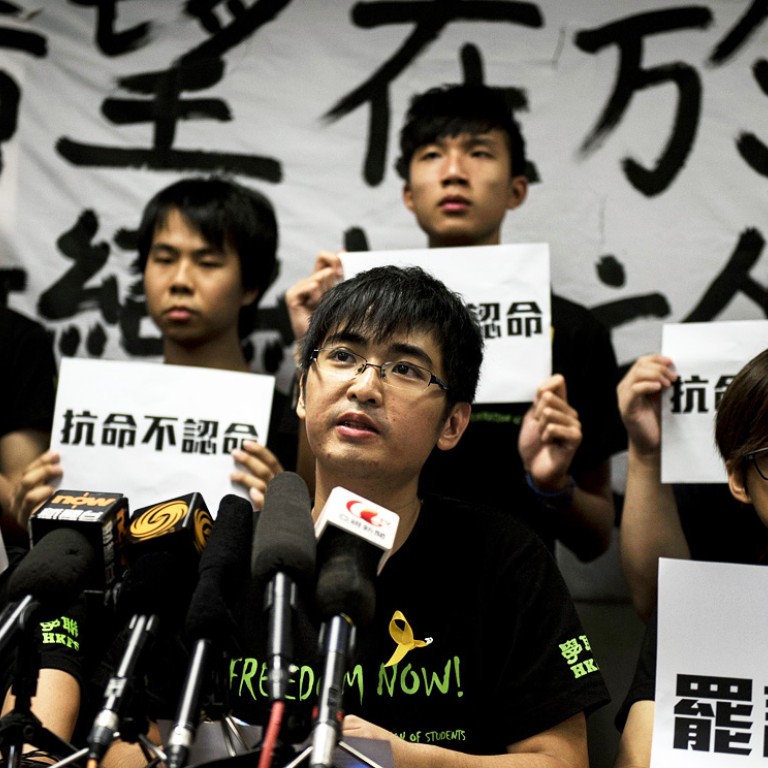
Students plan one-week school boycott to protest Beijing's election restrictions
In a move seen as a curtain-raiser to Occupy Central, students from at least 14 universities and colleges yesterday announced they would stage a week-long boycott of classes from September 22.
In a move seen as a curtain-raiser to Occupy Central, students from at least 14 universities and colleges yesterday announced they would stage a week-long boycott of classes from September 22.
This would be their "final warning" to officials, they said, after Beijing imposed a restrictive reform framework for the 2017 chief executive election.
But the announcement failed to move Chief Secretary Carrie Lam Cheng Yuet-ngor, who said it was hard for the government to address calls to abandon the National People's Congress' decision last week because it was a "solemn and serious decision" that was legally binding.
Critics say the NPC's decision - which has set a high nominating threshold and capped the number of candidates at two or three - effectively rules out pan-democrats from running.
Lam also appealed to the students not to engage in anything illegal or any activity that would affect other citizens and cause "counter-results".
Student representatives led by the Federation of Students warned they would escalate their actions after their class boycott if the government refused to back public nomination, which would allow all voters to nominate chief executive candidates - an idea Beijing has repeatedly rejected.
They also urged the government to abolish the legislature's functional constituencies and for Chief Executive Leung Chun-ying and the three top officials in charge of reform - including Lam - to step down.
The lawmakers' seats in the functional constituencies have often been criticised for their narrow electorates and for representing only the business elite.
"The framework set by the NPC … is an ancient appointment system and is by no way universal suffrage," said the federation's secretary general, Alex Chow Yong-kang.
"While the city's young people have stood up to oppose the NPC's decision, it's also time for the Hong Kong government to think about which side it is taking: to speak for Hongkongers, or the central government?"
Chow said the students were not asking too much from the Hong Kong government as Beijing's stern stance showed there was no point in trying to come to a compromise.
The students are expected to gather at Chinese University in Sha Tin on September 22, the first day of the strike, with organisers planning more rallies at either Tamar Park or Civic Square, near government headquarters.
Almost 30 scholars have promised to host outdoor lectures on topics ranging from civil society and democracy to press freedom throughout the week for the students boycotting classes.
Meanwhile, the federation's deputy, Lester Shum, hit back at criticism by some local officials and mainland media that the students were being manipulated.
"Every university student has their own independent and critical thinking, unlike those officials who merely obey the Communist Party's orders," Shum said.
"We just want to re-seize our future and not be manipulated by parties, the Communist Party and conglomerates any more."
More than a hundred secondary school pupils joined a forum hosted by student group Scholarism to discuss the boycott.


